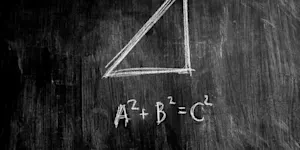What Makes This Word Tick
"Descry" is a verb that paints the picture of discovery. It's all about spotting the subtle or barely visible things from a distance. It's what your eyes do when they manage to pinpoint a shape on the horizon, like a sailor spotting land after months at sea.
If Descry Were a Person…
Imagine Descry as a curious old sailor, perpetually peering through a telescope. With a discerning gaze and a patient air, this character has a knack for finding the needle in the haystack. Descry doesn't miss a trick—everything is important and nothing goes unnoticed.
How This Word Has Changed Over Time
Once upon a time, "descry" was more about shouting out loud, akin to "decry." Over the centuries, it evolved into what it means today: the act of detecting something at a distance. It's a testament to how English keeps surprises up its sleeve.
Old Sayings and Proverbs That Use Descry
Old sailors might have said, "To descry land is to find hope," but there's no long-lost proverb now. Still, it doesn't take much imagination to picture those lines uttered in old maritime tales.
Surprising Facts About Descry
Did you know that "descry" shares its root with "describe"? Both are descended from the Old French "descrier." It's a charming reminder that seeing and saying can be intimately linked.
Out and About With This Word
You might not hear "descry" in daily conversations too often, but it shows up every now and then in literary discussions or poetic expressions. It's the kind of word that makes you stop and think.
Pop Culture Moments Where Descry Was Used
"Descry" may not headline a blockbuster script, but when it sneaks in, it lends a certain gravitas to the narrative. It's the kind of term you might find in a thoughtful monologue or the musings of a wise character.
The Word in Literature
In literature, "descry" is like that rare gem unearthed in classic novels or poems. It's used by authors who love painting vivid images with words. You might come across it in works by writers who relish the art of detailed description.
Moments in History with Descry
Think of the Age of Discovery when explorers like Magellan or Columbus might have used their skills to "descry" new lands. Capturing a distant land's silhouette after months at sea must have felt like magic.
This Word Around the World
While English speakers might use "descry," its counterparts in other languages vary. In French, you might hear "aperçu" when spotting something. These words share your sense of having the sharpest eye in the room.
Where Does It Come From?
"Descry" hails from the Old French "descrier," which means to cry out. Over time, it shifted meaning, illustrating how words evolve while echoing their origins.
How People Misuse This Word
People might mistake "descry" for "decry." While one means to discover, the other means to criticize—a small difference with a substantial impact in meaning.
Words It’s Often Confused With
Decry: To speak disparagingly about something or someone.
Describe: To give an account or depiction in words.
Additional Synonyms and Antonyms
Synonyms for "descry" include "discern," "detect," and "discover," each with its nuances. Antonyms would be "overlook" or "miss."
Want to Try It Out in a Sentence?
As the fog lifted, the captain could finally descry the distant outline of the mountains, bringing a chorus of relieved cheers from the weary crew.
















